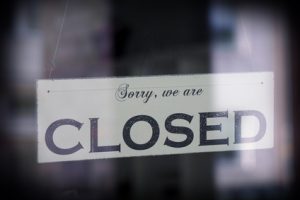The recent high temperatures and almost constant sunshine aren’t going to last forever, like it or not. As we move towards the winter period, temperatures will be dropping, and the wind will be building creating a raft of potential dangers as we go about our everyday lives. So what are some of the more common challenges when it comes to personal injury claims and the harsh winter weather of the UK?
Dangers On The Roads
There will be many challenges for drivers, passengers and pedestrians as we approach the winter period. We already know that the UK has a major problem with potholes and this is only going to get worse in the short to medium term with wild temperature swings creating havoc. So, if you have an accident on a snowy/icy road where does the blame lie?
- Local/national transport authorities
The UK has a raft of local authorities in charge of their local highways and byways while the national authority takes in the motorways and main roads. The first thing to remember is that sudden snowfalls or significant temperature drops are not always predictable. Legally, the appropriate authority has an obligation to ensure the roads under their control are gritted, cleared and ultimately safe to drive. In reality, there is no way that even a fully funded local/national authority would be able to treat every road just prior to bad weather or in the event of a sudden change in the weather. If they can prove they reacted within a reasonable timescale, with a need to maintain busier roads first as opposed to country roads, it might be difficult to prove full negligence if you’re injured because of a pothole.
- Motorist responsibilities
It is also worth noting that in the event of icy/snow-covered roads there is an obligation for motorists to take a more cautious approach to their driving. This is around the time of year we start to see instances of people driving when their car windows have not been fully cleared and demisted. Maybe your vehicle has not been maintained to a level which is appropriate for the change in weather. In these scenarios it would be extremely difficult to apportion total blame for a car accident to road conditions when the driver has obviously acted without full due care and attention. We also see similar instances of speeding to a degree which does not reflect weather and road conditions. Responsibility is a two-way street….
Dangers On Pathways
Public pathways are generally the responsibility of the local authority and, in a similar vein to the situation surrounding weather impacted highways, there is an obligation to clear public pathways. Unfortunately for those injured due to slips, trips and falls on an icy path, if the local authority can prove they acted as quickly as possible to address weather related issues then they may escape liability. The situation is very different if the local authority was warned about the state of a particular pathway and failed to react. In this instance, it is highly likely that they would be held responsible for any injuries.
It is also worth noting that private businesses/private households also have an obligation to ensure their premises and surrounding property is safe. In the event of an accident involving a visitor to their premises there is every chance they would be held liable for injuries caused if they failed to take the appropriate action. Where dangers have been identified and warning notices erected it is then the responsibility of individuals to take note and act appropriately.
Dangers Of Strong Winds
As wind speeds begin to increase across the UK it is only a matter of time before we see growing reports of weather damage. It is common knowledge that there is a “get out clause” in the insurance industry which relates to “acts of God”. When something, like the weather and strong winds is outside of the control of any third party pursued for damages, it is difficult to prove negligence. However, there are some exceptions to the rule!
In the event that for example, a driver was hit by garden furniture which had been whipped up by the wind and deposited through their windscreen, which party would be liable? Is this simply an “act of God” or is there a degree of negligence on behalf of the owner of the garden furniture? There may be a case for arguing that the objects were not secured in an appropriate manner despite weather warnings. In this instance, there is every chance that despite the fact it is based on an act of God the damage caused resulted from a degree of negligence by a third party. There is also an argument to suggest, in extreme circumstances where perhaps no driving instructions have been issued by the authorities, a driver took on partial/full responsibility by undertaking the journey.
Dangers Of Snow And Ice
If you look at the dangers of snow and ice and potential for injuries there are many different scenarios. What would happen if for example you were injured by snow falling from a roof which had not been cleared by the owner? What if you were injured by an icicle falling from the side of a building? These two examples are grey areas where there is no one size fits all solution or degree of liability.
If the property owner had been warned about the dangerous icicles or the amount of snow building up on their roof, they then have a legal obligation to take action. In the event of an injury as a consequence of action not taken within a “reasonable timescale” there is every chance they could be found negligent and partially/fully liable to pay compensation. If the appropriate warning signs were erected prior to the issues being addressed, this may well eliminate any liability, or at the very worst reduce it.
Reasonable Action And Liability
When it comes to acts of God related to the weather there is a potential “get out clause” if a third party can prove they acted reasonably and in an appropriate timescale. The law does not expect snow to be cleared at first drop, ice to be removed as soon as it begins to form, but there is an expectation of preparation where these situations can be predicted to a certain extent. In many weather-related situations a degree of negligence/liability can also be apportioned to injured parties where they failed to adjust their actions to take account of the weather conditions.
Whether a local authority or private business, if you’re warned about potential dangers as a consequence of weather conditions you need to act as quickly as possible. In a worst-case scenario warning signs should be erected telling all parties to avoid the particular area. It is unreasonable to expect local authorities to grit every road in their area overnight. If they can prove a structured plan which focused on busier roads first and then less busy roads this should be enough to negate any claims of negligence. However, all actions for personal injury claims will be considered on a case-by-case basis. There is such a thing as a no blame accident where the victim may not be eligible for any compensation.
Summary
There are many grey areas when it comes to weather-related accidents and subsequent injuries. While the “act of God” clause often comes in very handy for insurance companies this does not offer total protection where there has been negligence. So, if you have been injured as a consequence of icy roads/pathways or hit by objects whipped up by the wind do not automatically assume you do not have a case for compensation.
It is strongly advisable to take the advice of a personal injury solicitor after gathering as much evidence as possible to strengthen your claim. They will review your claim in great detail, request additional information if required and look through the array of legal rulings of years gone by. As we touched on above, the actions of all parties involved in a personal injury claim will come under great scrutiny. If there is evidence to suggest that the victim was partially or fully to blame for the accident then this would be taken into consideration. Partial negligence rulings are a lot more common than many people assume when it comes to personal injury claims.



